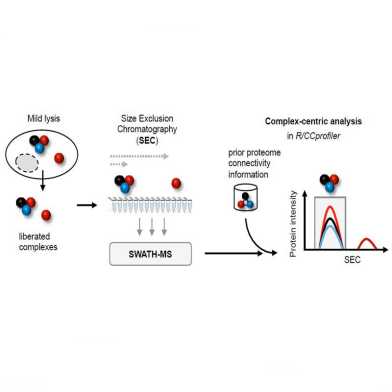03
Hydrophobic adhesion forces of leaf microbiota members revealed by a modular AFM approach
Adhesion is a key process in bacterial surface colonization and biofilm formation. A recent paper in “The ISME Journal” highlights a broadly applicable atomic force microscopy (AFM) method to quantify the single-cell adhesion forces of bacteria.
Complex-centric proteome profiling by SEC-SWATH-MS

Proteins are major effectors of biological processes and their organization into macromolecular complexes is of great biological and clinical significance. A recent “Molecular Systems Biology” paper by the Aebersold group (IMSB) presents a workflow for the parallel detection of hundreds of protein complexes and their variants in a single operation.
Welcome to the Department of Biology

Kirsten Bomblies has started her position as Full Professor of Molecular Plant Sciences as of 1 March 2019. In her research, she focuses on the selection forces that drive the evolution of plants, and the molecular basis of adaptation. This professorship is located in the Institute of Molecular Plant Biology.
Microbial abundance, activity and population genomic profiling with mOTUs2
A “Nature Communications” paper highlights a bioinformatic method, developed by the Sunagawa lab (Institute of Microbiology) in collaboration with the Zeller group at EMBL, that enables accurate abundance and activity profiling of known and unknown species that live in complex microbial communities.
The thioredoxin-1 system fuels DNA biosynthesis during lymphocyte metabolic reprogramming
The thioredoxin-1 and the glutathione/glutaredoxin-1 systems are key players in preserving cytosolic redox balance. How these redox systems serve cellular and humoral immunity mediated by T cells and B cells, respectively, remains unknown. Two recent publications by the Kopf group (IMHS) revealed the underlying mechanism.